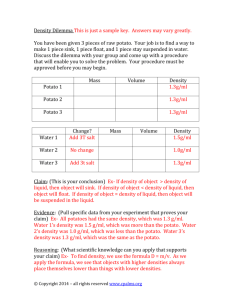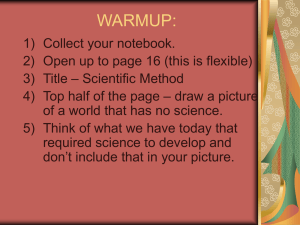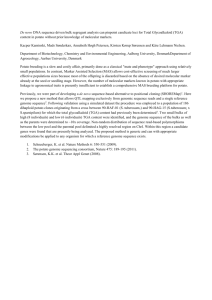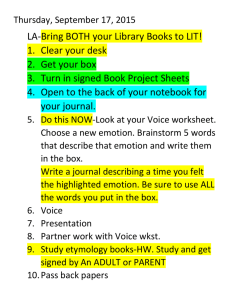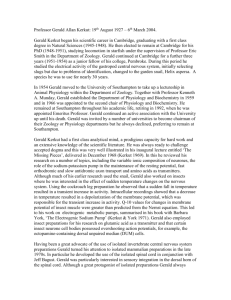Case_Module_Osmosis_Angela___Huey_Min_2015
advertisement
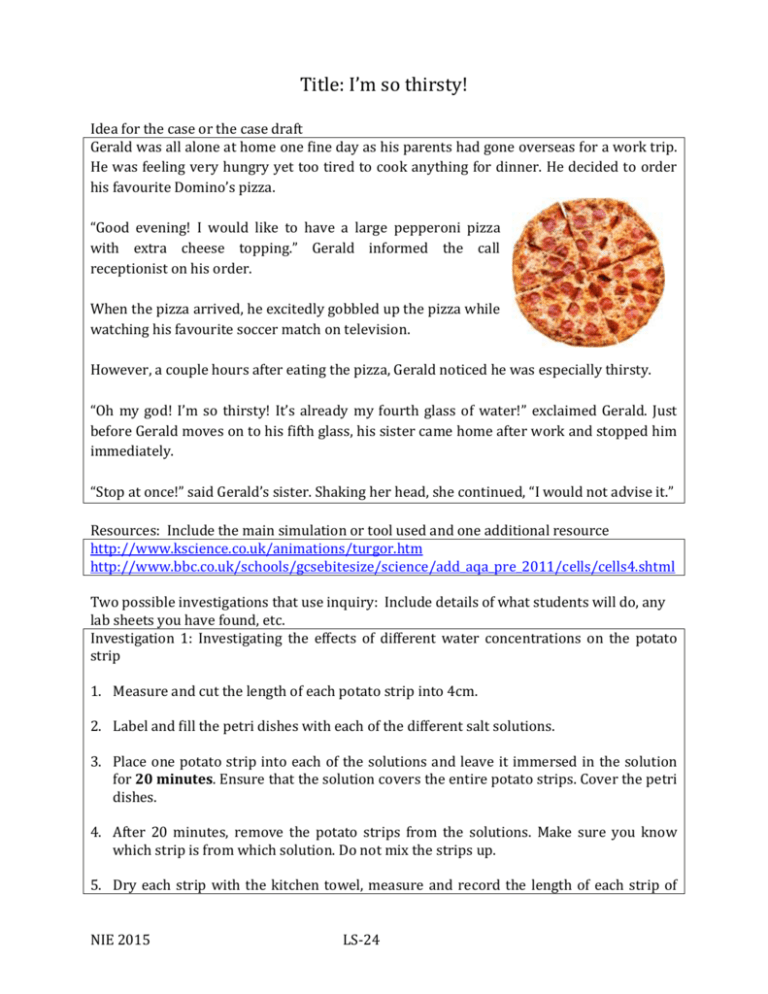
Title: I’m so thirsty! Idea for the case or the case draft Gerald was all alone at home one fine day as his parents had gone overseas for a work trip. He was feeling very hungry yet too tired to cook anything for dinner. He decided to order his favourite Domino’s pizza. “Good evening! I would like to have a large pepperoni pizza with extra cheese topping.” Gerald informed the call receptionist on his order. When the pizza arrived, he excitedly gobbled up the pizza while watching his favourite soccer match on television. However, a couple hours after eating the pizza, Gerald noticed he was especially thirsty. “Oh my god! I’m so thirsty! It’s already my fourth glass of water!” exclaimed Gerald. Just before Gerald moves on to his fifth glass, his sister came home after work and stopped him immediately. “Stop at once!” said Gerald’s sister. Shaking her head, she continued, “I would not advise it.” Resources: Include the main simulation or tool used and one additional resource http://www.kscience.co.uk/animations/turgor.htm http://www.bbc.co.uk/schools/gcsebitesize/science/add_aqa_pre_2011/cells/cells4.shtml Two possible investigations that use inquiry: Include details of what students will do, any lab sheets you have found, etc. Investigation 1: Investigating the effects of different water concentrations on the potato strip 1. Measure and cut the length of each potato strip into 4cm. 2. Label and fill the petri dishes with each of the different salt solutions. 3. Place one potato strip into each of the solutions and leave it immersed in the solution for 20 minutes. Ensure that the solution covers the entire potato strips. Cover the petri dishes. 4. After 20 minutes, remove the potato strips from the solutions. Make sure you know which strip is from which solution. Do not mix the strips up. 5. Dry each strip with the kitchen towel, measure and record the length of each strip of NIE 2015 LS-24 potato accurately in the table below. Source: LSS Exp/N(A) Teaching and Learning Guide, CPDD, 2008 Investigation 2: Observing plasmolysis in plant cells Source: http://www.nuffieldfoundation.org/practical-biology/observing-osmosisplasmolysis-and-turgor-plant-cells Two possible student products Design a mini-poster to report on inquiry’s findings Design a pamphlet to educate the public on reducing salt intake NIE 2015 LS-24 One example rubric for one of your products Poor 1 Fair 2 Good 3 Excellent 4 Data table and/or graph missing information and are inaccurate. Data table and graph both present with 2 or more minor inaccuracies. Data table and graph both present and accurate with one mistake. Data table and graph neatly completed and totally accurate. Discussion & Conclusions Presents an illogical explanation for findings does not address hypothesis. Presents an illogical explanation for findings barely supports hypothesis. Presents a logical explanation for findings -mostly support the hypothesis. Presents a logical explanation for findings which support the hypothesis. Organization Very Scattered Scattered Better Structured Well Structured Effort Little Effort Decent Effort Good Effort Outstanding Effort Presentation Quality Hard to hear Some voice clarity Good voice clarity Excellent voice clarity Overall Below Average Average Good Excellent Topic Results Score How the 21st Century Competencies are addressed 1. Civic Literacy, Global Awareness & Purposefully divide the students into groups with mixed gender and race Cross-cultural Skills 2. Critical and Inventive Thinking Educate the community about healthy eating habit (low salt intake) Conclusion of results in mini-poster Decipher what happens to an animal cell when placed in water of high and low water potential (relate to water drunkenness) How to manage the findings (recording and analysis) NIE 2015 LS-24 3. Information and Communication Skills Collaborate within their groups to design a miniposter or pamphlet Themes/major concepts of Lower Secondary Science Syllabus 2013 addressed Theme Major idea Systems Osmosis facilitates the movement of water molecules. Authors and school affiliations Angela Chua Li Xia – Jurongville Secondary School Koh Huey Min – Marsiling Secondary School NIE 2015 LS-24
